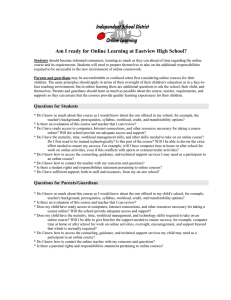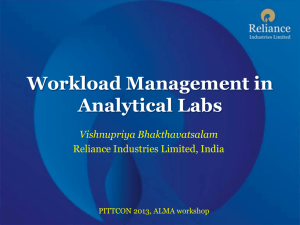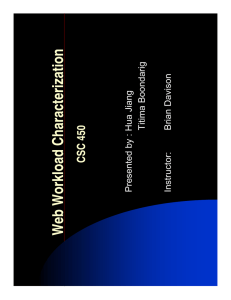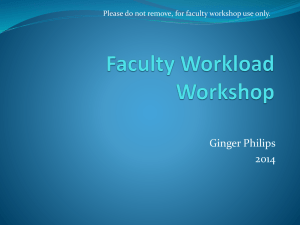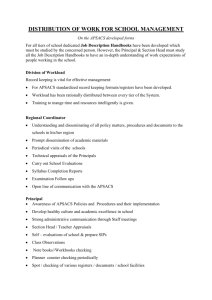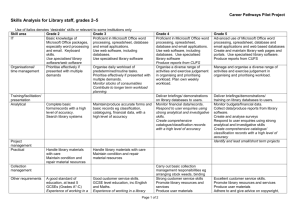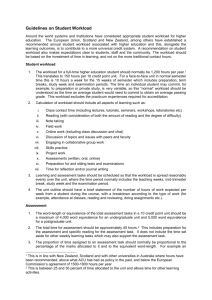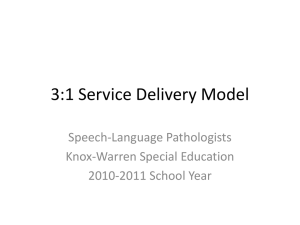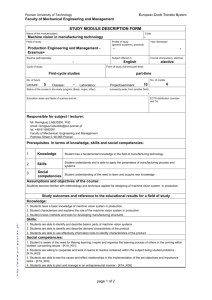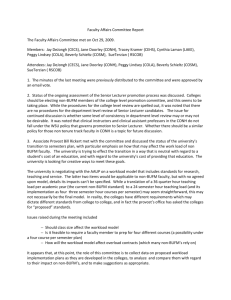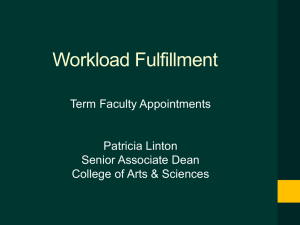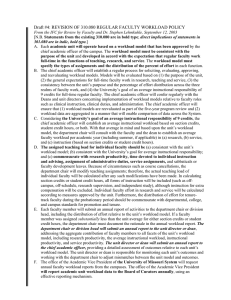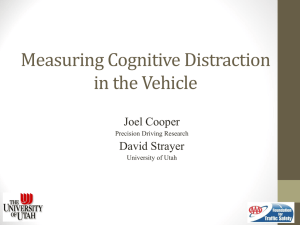Strategies for assessment and feedback - Jude Carroll
advertisement
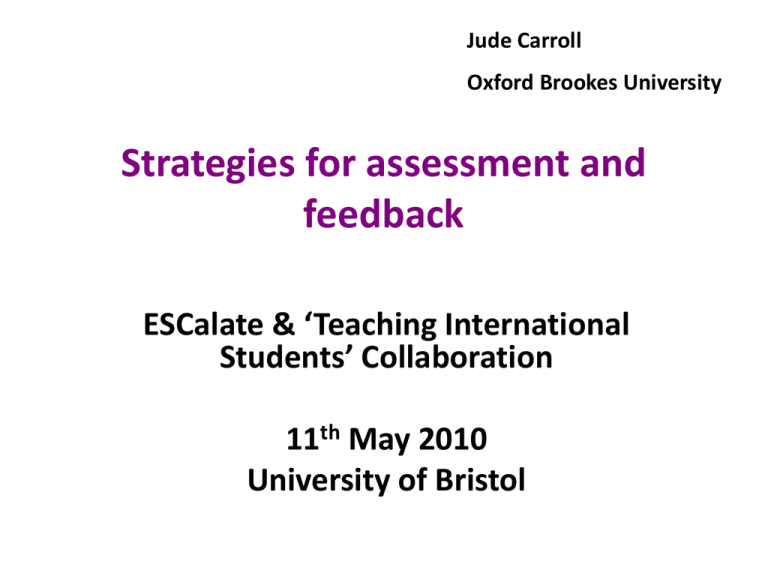
Jude Carroll Oxford Brookes University Strategies for assessment and feedback ESCalate & ‘Teaching International Students’ Collaboration 11th May 2010 University of Bristol Strategies for assessment and feedback where…. …. teachers & students may not share Expectations (‘Why is the teacher asking for this?’) Language (‘Doing it in English!’) Past experiences (‘What is an essay?’) (‘I rely on just my textbook to pass’) (‘ .. What is a TESCO?’) Future goals (‘I must get a top mark….’) Returning to the morning stories… Assessment and feedback are …. relational & interactive … dependant on tacit and implicit knowledge …. designed to maintain standards …. culture-specific and language –dependent …. unavoidable …. And?...... What other characteristics do your stories show? Important: Most international students go home with a qualification. Most teachers have developed strategies for assessing diverse (culture + language) groups Most standards seem safe Most teachers give feedback Most students say they would recommend others to come and do their programme But….. Same outcomes with Less stress? Less workload strain? Less struggle? [It will never be easy!] Less panic? (real or imagined) about standards More time and effort on learning? More rapid catching on by students of what is expected? More efficient ways to align teacher/student expectations and actions? Standing in international students’ shoes…. [especially in the beginning] Assessment is in the top 3 for anxiety (UCoSA, 2004) Unexpected / surprising (‘..did not expect difference’ Pointon, 2009) Unavoidable Unfamiliar (a bit… very … totally) Unclear (Grades, Standards, criteria ….) "Despite having earned almost exclusively very high marks, handing-in always feels like a trip to the casino to me”. Urgent & Important Time-consuming [Over time], often welcome A Postgrad student writes, [at the end of her UK studies]: During my studies in Romania I had to memorise things, which …. was tested and nobody cared if the following day you remembered nothing. However, during my Masters degree [in the UK] I had to write 4,000 word assignments and read many articles from dissimilar positions. I also had the chance to write about topics that I was interested in, which made the tasks more personal and enjoyable. What differences can you spot? Go beyond the obvious Awareness of assessment cultural differences, different practices? [Our Way …. or …… The Way?] TASK: Read the handout. Discuss: have you taught students with previous assessment and feedback experiences like these? Make a list: What assessment issues did the students face when they travelled to UK programmes? What ‘works’ and what ‘does not work’ for effective assessment practices? Denial ‘I teach. It’s up to them to learn.’ ‘I teach Chemistry. Oxygen is the same everywhere’ ‘I didn’t admit this student who can’t speak English’ ‘They came here for a British education….’ ‘Repair’ ‘You fix them and then I’ll teach them’ ‘These students can’t….. They don’t ….. They are not motivated….’ Students must adapt ‘These students need to learn new ways, to learn our ways. I’ll help them do that…. a bit’ Teachers accommodate and adjust their practice ‘OK, XXX is not reasonable so let’s require YYY. But this [ZZZ], this we cannot and will not change…..’’ A shared responsibility….. Students adjust and adapt ‘New game, new rules’ Teachers adjust, include and accommodate ‘New players, new game’ Focus for the rest of this session: What helps and hinders both sides concerning assessment? What contextual factors [institutional / disciplinary] need attention? A teacher- centred perspective: What can teachers do about their own assessment practices? What teachers can do that helps students with UK assessment….. Teaching relevant skills Provide practice, practice, practice, practice especially if it is low-risk Explicit discussion of difference. Probe for meaning (New Chinese PG says: ‘Yes, we wrote a 15,000 word UG dissertation using many sources’) Exemplars Specific, criteria-linked feedback. Lots! Making ‘what works for students in assessment’ happen? • Institutional-level strategy (admissions, informal curriculum, resourcing for advice and guidance, specialists etc) • Programme-level planning Less ‘support’, more ‘teaching’ Progression, focus on graduates’ outcomes Raising students’ own awareness (‘assessment literacy’) • Teachers’ skills Addressing teachers’ concerns and Teachers’ concerns about assessment and feedback [for international students] • Time • Standards • What to mark • Fairness • Students’ contextual knowledge / setting a task What are the questions we need to be asking ourselves and our colleagues about effective assessment and feedback? Activity: In groups, we will address 4 areas which link to effective assessment of international students Task: using the prompts and the handout, create questions that need to be answered. Concentrate on making good questions. Write the three best on a flip. Focus on standards [Reliability] [What students should be doing + how well they should be doing it] Agreeing on : • Criteria • Outcomes • Grades • Thresholds between pass and fail • Achievements for level (start, middle, graduate….) • … ‘good enough’ English language standards • Plagiarism and use of sources Focus on Validity [What teachers should be judging, aligned with learning outcomes.] Agreeing on : • relative importance of language, structure, ideas/content in determining a grade • downplaying/ overlooking less important criteria when marking • sustainable marking: managing frustration, ‘bug-bears’, stamina, etc Focus on method [‘How’ ‘what’] [What teachers ask students to do to show they have met learning outcomes.] Creating tasks which: • give everyone an equitable chance to succeed • permit alternatives [formats] where appropriate to strengthen validity (for example, less language demanding methods where content is central; more time where some read slower; etc) • assess students’ learning in the course, not what they bring with them • keep teachers’ workload realistic • match students’ workload to the value of the grade. Focus on Feedback [How we tell students if they are on track. In future, getting on track or improving.] • • • • • • Clear (the student understands what it means) Helpful (The student can act upon it for future benefit) Specific (The student can see how it could be done) Timely Focused (The important messages) Efficient (Teacher workload is sustainable) Finding answers Bringing it back to you
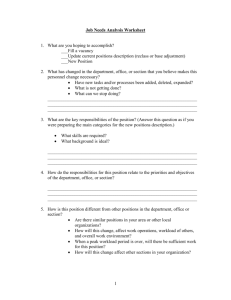
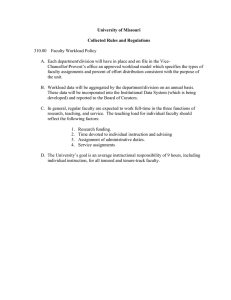
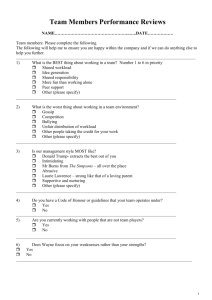

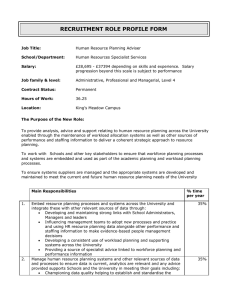
![Guidelines for Academic Workload Allocation[1]](http://s3.studylib.net/store/data/007357775_1-c08378375a61bf04d5de327b7ce434b5-300x300.png)
